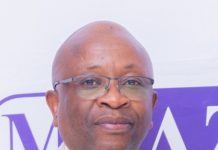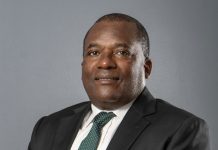
Cimas Health Group mobile clinic (pic by Cimas Health Group)
BY MUNYARADZI BLESSING DOMA
Many people living in remote areas face the daunting task of accessing health services.
In most cases, most of them do not seek the service, not because they don’t need it, but because of the accessibility challenge.
But thanks to innovation, accessing health services in such underserved communities has been made easy through the use of mobile clinics.
According to Intersos, a mobile clinic is a vehicle, like an ambulance or van, that is equipped to provide healthcare services directly to communities, particularly those in remote or underserved areas.
These clinics bring essential medical care, such as basic health checks, vaccinations and emergency interventions to people that may have difficulties accessing traditional healthcare facilities.
Intersos add that they (mobile clinics) operate like a ‘clinic on wheels’.
For Zimbabwe, having mobile clinics is part of efforts to try meet some of the dictates of the Universal Health Coverage (UHC) which among other issues, seeks to ensure accessibility in healthcare.
And to complement government’s efforts to provide healthcare to all citizens no matter where they are; Zimbabwe’s largest private medical aid society, health and wellness service provider, Cimas Health Group; acquired a state of the art mobile clinic.
A tour of the state of the art mobile clinic revealed that it (mobile clinic) allows them to provide health care in the comfort of the person’s locality and for those communities where the nearest health care facility can be kilometres away from where they stay.
It was added that having such a vehicle was an advantage in that it’s a clinic on wheels and is able to do basically everything that you can find in a brick and mortar facility.
Cimas Health Group mobile clinic has basically everything, including a dental unit and an ultra-sound scan for pregnant women.
“We have the equipment to do even minor procedures, when we visit places like mining areas where there are risks of injuries.
“So far we are trying to identify areas where you have limited capacity and the nearest health centres are quite far, like some mining areas, so we are trying to map how we are going to operate.
“We know that majority of our population lives in the rural areas so the health care data and access to health has to cover that population because that’s where most of the people are.
“So if we have more of these units, it actually helps a lot and it gives us much more quality data for reporting because really there are instances where people who are towards the border areas even cross to access health care services.
“So this kind of services shall cover quite a lot of people and when we go to such hard to reach areas, we might have medical tourism from these border areas,” said Dr Travolta Mushayamano.
After Cimas Health Group acquired the mobile clinic, they started with a trip to a farm in Mhondoro, which was their pilot trip and it (the pilot trip) was said to have been very successful; as they did two days and they got positive feedback.
The group’s Chief Executive Officer, Vuli Ndlovu said acquiring the mobile clinic underscores their commitment to providing global standard health and wellness solutions regardless of their location or circumstances.
“In today’s fast-paced world, access to quality healthcare is of utmost importance and as Cimas continues to be innovative in the health sector, we purchased a mobile clinic in our efforts to improve the accessibility of health services.
“This mobile clinic is a transformative tool in the healthcare delivery system as it revolutionises the way medical services are provided. It brings healthcare directly to communities, regardless of their location or infrastructure limitations,” said Ndlovu.
Ndlovu added that through the mobile clinic, they seek to take health services delivery to underserved populations and areas with limited or reduced healthcare infrastructure.
“Our mobile clinic will be used to provide a wide range of services that can be tailored to specific needs of the populations thereby bringing healthcare directly to communities in need,” he noted.
“Using this mobile clinic will help us expand our efforts to deliver health care to less privileged societies as the mobile clinic will be used to cater for a wide range of healthcare needs, including preventive care, vaccinations, health education, and primary healthcare services.”
He further noted that by operating the mobile clinic, Cimas Health Group can bridge the healthcare gap and ensure that even the most vulnerable populations can receive the medical attention they deserve.
“Strengthening health service delivery is crucial for Cimas and to the achievement of the health-related Sustainable Development Goals (SDGs), which include the delivery of interventions to reduce child mortality and maternal mortality,” added Ndlovu.
Cimas Health Group was also commended for using the mobile clinic to offer health services to the people of Matabeleland North Province, when they teamed with Smilestar, a United Kingdom based dental organisation.
They conducted a two-week-long dental outreach program and as part of the dental outreach programme, Cimas Health Group in addition to providing their doctors, also offered their fully equipped mobile clinic for free.
And through that health outreach, Smilestar and Cimas Health Group doctors, were also assisted by Victoria Falls-based Doctor Blanch, as they provided free dental care and treatment offering restorative work, periodontal treatments and simpler endodontic cases.
And after the successful Victoria Falls mission, the medical team went to Hwange, also offering dental services.
Ndlovu said they believe that access to healthcare, including oral health, is a fundamental right adding that they are committed to improving health outcomes and fostering healthier futures for all.
In a recent interview at the National TB (Tuberculosis) Conference in Harare, Minister of Health and Child Care, Dr Douglas Mombeshora said mobile clinics had helped in the management of many diseases, including TB.
He said whilst some cases are missed, mobile clinics offer relief as the service is taken to where the people are.
“Because the role of mobile clinics is to make sure there is early diagnosis, so that those who are diagnosed with any type of disease can be treated.
“So what we can say is that mobile clinics have improved the detection of TB and there is an improved treatment because people are now being put on treatment right away.
“So that’s the role of mobile clinics,” said Dr Mombeshora.
He added: “they are actually going to the areas where people will not seek medical attention because they are not feeling any pain or anything, but we take this service to them.
“We are just asking you to go and stand in front of an x-ray and the x-ray is done within minutes.
“We are seeing a lot of people taking up these services and as a result, there are more who are screened and tested.
“Therefore, the better treatment, the better outcomes, it means we can then eliminate TB and all other ailments can also be treated.”
By reaching communities which in most cases have no medical service, mobile clinics are one of the best innovations set to save lives as they play a critical of bridging the health gap.











